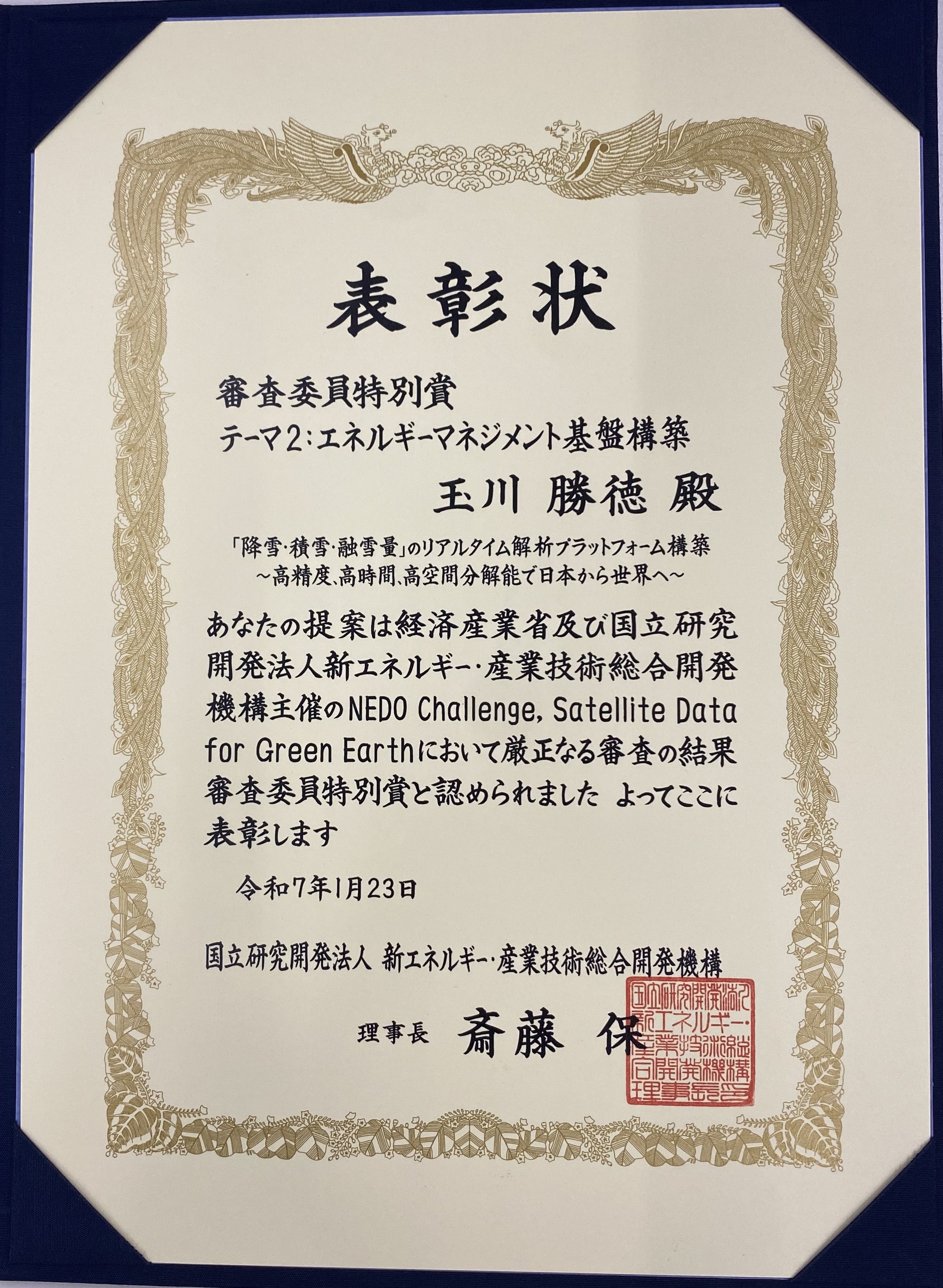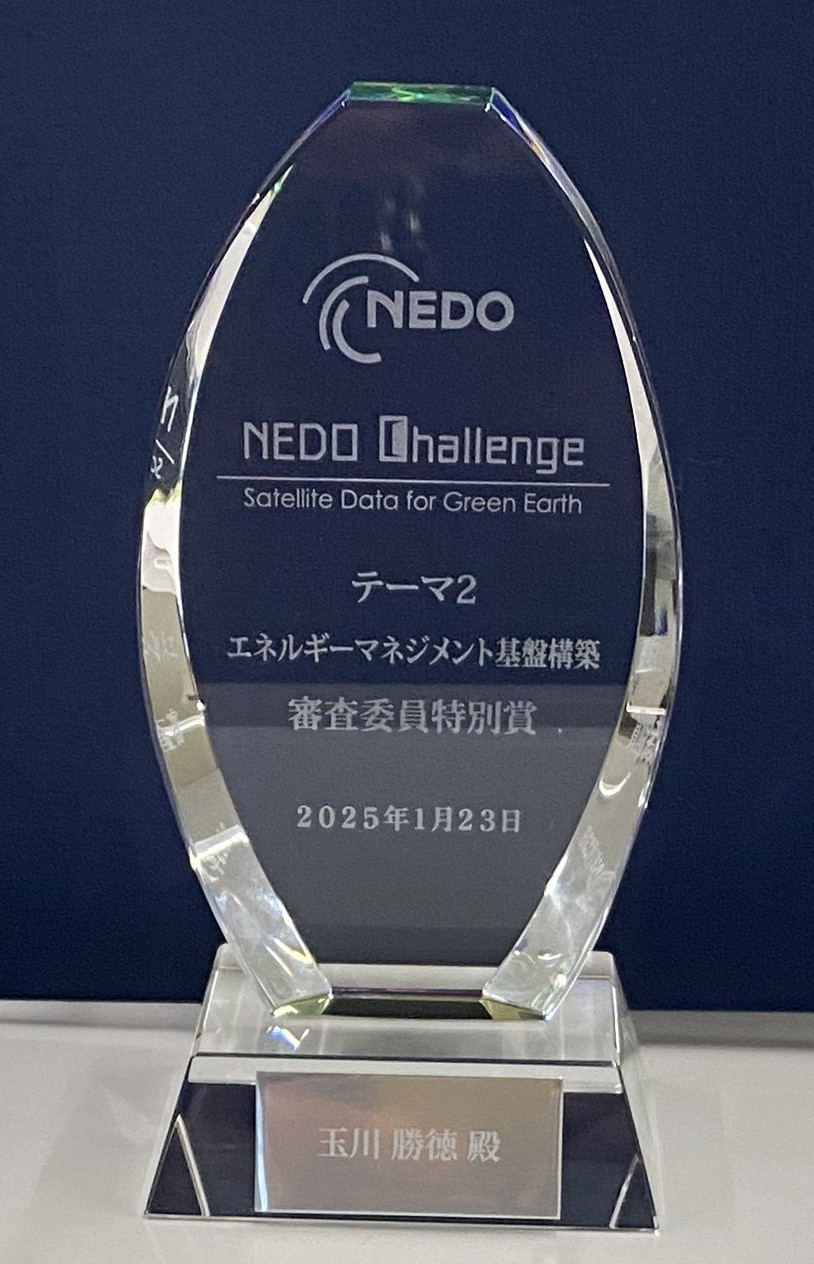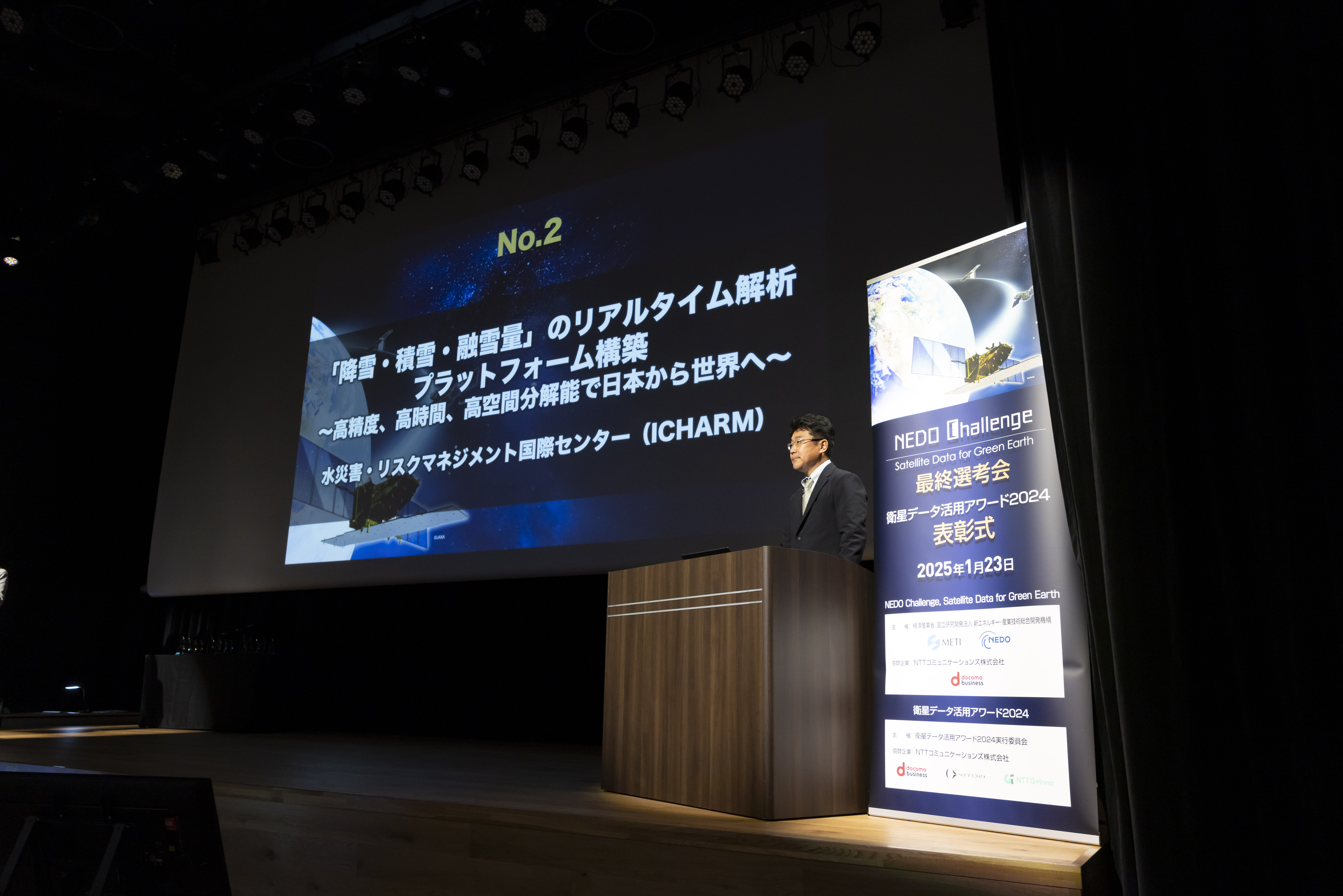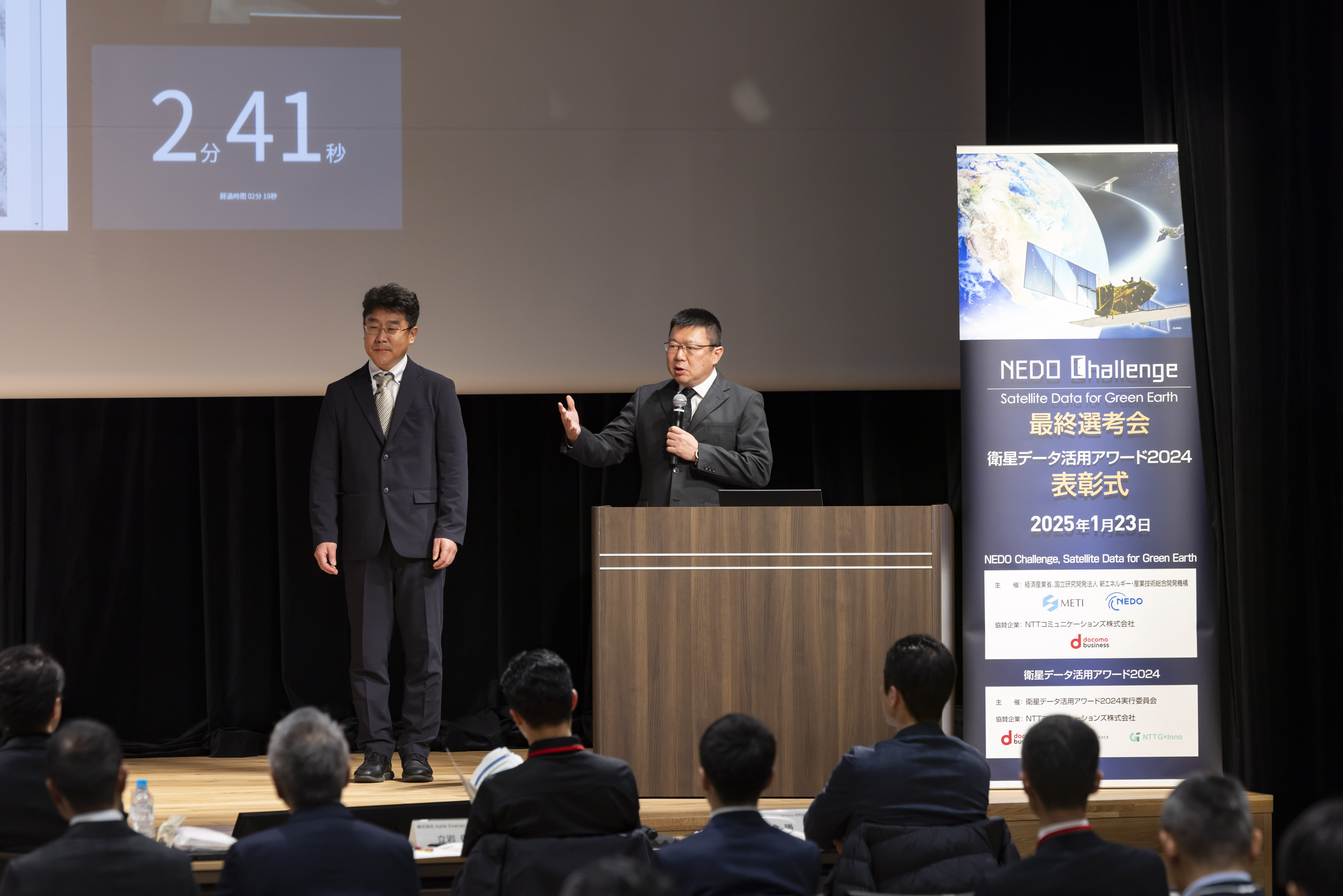A research team at ICHARM (Lead researcher: Research Specialist TAMAKAWA Katsunori*) received the Judges' Special Award in the “NEDO Challenge, Satellite Data for Green Earth” category of the NEDO* Prize for New Industrial and Innovative Technologies for fiscal year 2024. This prize is a contest-type, prize-funded research and development program that aims to uncover breakthrough ideas that can address future social challenges and foster new industries. The prize committee awarded the ICHARM team in recognition of the significant potential of their proposed technology to address future challenges by utilizing satellite data.
ICHARM submitted a proposal under the theme “Development of Energy Management Infrastructure” with the title “Development of a Real-time Analysis Platform for Snowfall, Snow Accumulation, and Snowmelt: From Japan to the World with High Accuracy and High Temporal and Spatial Resolution.” Although snow is a globally important resource for energy, water, and tourism, accurately quantifying the different forms of snow in real time remains a significant challenge in many countries. This is the case even in Japan, which has a well-developed ground-based observation system, and the situation is even more difficult in snow and ice regions in Asia and South America. To address this challenge, ICHARM proposed the development of an analysis platform that physically calculates and identifies the quantities of snowfall, snow cover, and snowmelt in real time by integrating and analyzing satellite observation data (GSMaP precipitation data, MODIS leaf area index, and snow coverage data), ground observation data, and numerical weather model output (reanalysis data) on the Data Integration and Analysis System (DIAS). This technology will help predict snowmelt runoff accurately, leading to more efficient hydropower dam operations and, consequently, increased power generation. To promote the global application of the snow hydrological model developed mainly in Japan, ICHARM selected a snow-covered basin located at elevations of 4000 to 6000 meters in Bhutan. In such a high-elevation area, it was necessary to refine the snow hydrological model by introducing a glacier model, inputting the actual vegetation area, and adjusting the saturated water vapor pressure in the evapotranspiration calculation. Senior Researcher Abdul Wahid Mohamed Rasmy greatly contributed to these elaborations.
In this development, considering highly uncertain precipitation information from satellite observations a “snowfall signal,” we developed a sophisticated snow hydrological model that can be applied to high altitude areas. This model has made it possible to estimate snowfall worldwide, including high mountain areas, which was previously impossible.
The entire amount of the prize money awarded will be donated to the Public Works Research Institute for use in ICHARM's research and development.
NEDO Prize for New Industrial and Innovative Technologies
https://www.nedo.go.jp/activities/ZZJP_100268.html
NEDO Challenge, Satellite Data for Green Earth
https://space-data-challenge.nedo.go.jp/green_earth/index.html
*TAMAKAWA Katsunori is a project researcher at the University of Tokyo's Global Environment Data Commons from this April.
*NEDO: New Energy and Industrial Technology Development Organization, Japan's public management organization promoting research and development, as well as deployment of industrial, energy and environmental technologies.
 |
 |
 |
 |
at the final selection committee |
during the Q&A session at the final selection committee |